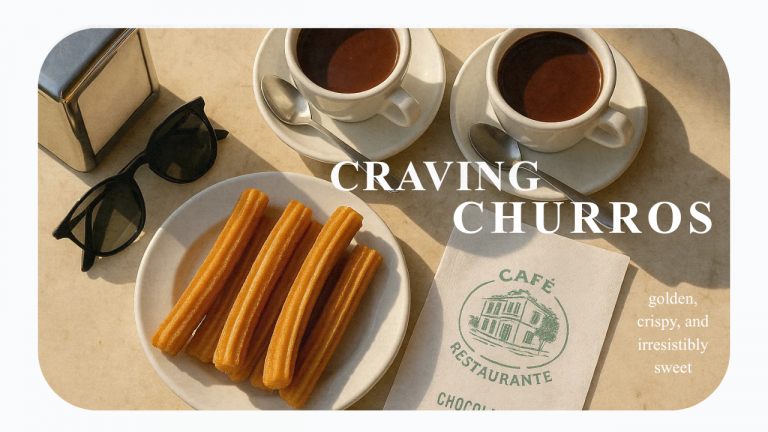
Spain is a country that is both desired and romanticized by many. With sunny plazas, afternoon siestas, and endless tapa evenings, this country is known for enjoying life.
When I first moved to Spain, I found some habits really bizarre. Especially in small Spanish towns, where I was first located, siestas are taken very seriously. Good luck finding milk for your afternoon coffee – because the time you realize you’ve run out, the shops are asleep too.
It took some adjusting, but once you get used to it, you start to see the beauty in it.
💤 La Siesta
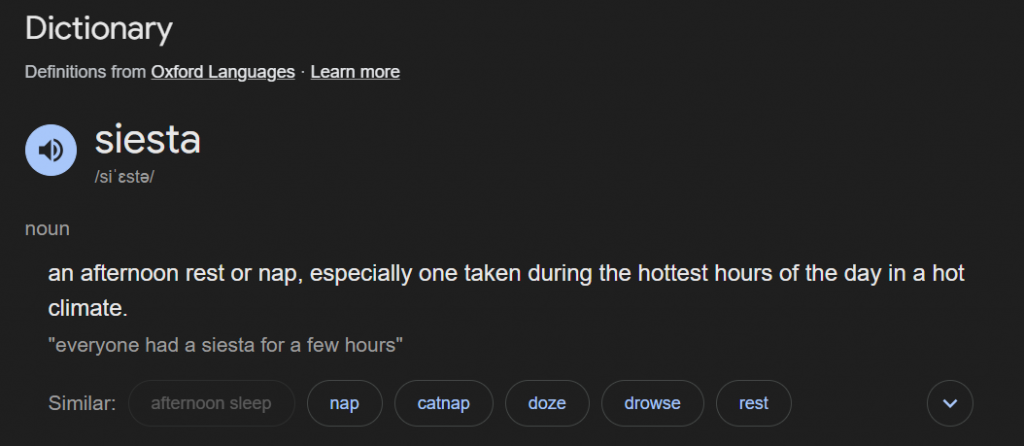
Siestas were a hard concept to get used to. Of course, in large cities like Málaga, Barcelona, or Madrid, the idea of shutting the city down in the middle of the day just isn’t practical. Still, some smaller shops hold on to the tradition, closing their doors for a few quiet hours. There, the siesta lives as a personal habit – a moment to relax after lunch, recharge, and simply pause before the evening begins.
Over time, living in a small town, I started to see the beauty in shutting the stores down, the kitchen, and even coffee shops. The idea that rest isn’t something to feel guilty about, but something to protect.
In Spain, taking a break isn’t laziness — it’s part of living well.
🫒🍷 Tapas Culture

If siestas taught me the value of slowing down, tapas taught me the joy of coming together. The idea of joining your friends in the afternoon for tapas is beautifully simple, yet it carries meaning that goes far deeper than just the food. What I love most is how effortless it feels. There is no effort in debates about where to go and what to eat. You show up, share a few small plates, eat slowly, laugh, maybe hop from bar to bar, and enjoy the good company.
Tapas are not about what’s on the table, but the experience that comes with it.
🥂 Late-night dinners
In Spain, people love staying up late and socializing after work. With bars and restaurants open until late, it’s easy to have dinner at 10 p.m. Even with long working hours, Spaniards generally eat dinner much later in the evening than in many other countries.
Interestingly, Spaniards have been living in the wrong time zone for more than 70 years. In the 1940s, Spanish dictator Franco moved Spain’s clocks one hour ahead, aligning the country with Central European Time (CET) in solidarity with Nazi Germany. Even though the clocks changed, people didn’t really change their habits. They still woke up, worked, ate, and slept according to the sun’s position, just under a new official clock.

Before 1940, Spain used the same time zone as the United Kingdom and Portugal (Greenwich Mean Time or GMT). After World War II, Spain never switched back to its original time zone. As a result, Spain is still one hour ahead of its geographical and solar time. When the clock says 2:00 pm in Madrid, the sun is in the same position as 1:00 pm in Lisbon and London, even though geographically the cities are roughly the same longitude.
That means lunch, dinner, and other routines all happen “later” by the clock, even though they’re still aligned with daylight.
That’s why dinner 9-10 pm isn’t just a cultural quirk; it’s a result of that historical clock change. The routines stayed synced with the sun, while the “official” time runs ahead.
🏠❤️ Family first
Spaniards highly value family time and close connections. It’s ingrained in their culture. Family often comes before work, friends, and sometimes even before personal ambitions. Families would keep close ties not only with immediate family, but also with extended relatives – grandparents, aunts, uncles, and cousins. It’s common for families to share long meals. Adult children who move out often visit their parents several times a week or live nearby. Family gatherings are frequent, lively, and full of conversation, laughter, and food. Sunday lunches, birthdays, and religious festivals often turn into big family events.
That said, in larger cities like Madrid and Barcelona, life moves at a faster pace. Long commutes, busy work schedules, and urban lifestyles mean that family time may not always be as abundant or relaxed as it is in smaller towns. Even so, Spaniards continue to value staying connected and making time for loved ones whenever they can. It’s the mall gestures that reinforce the importance of family in daily life.
🥘🍷 Love for food and wine
For Spaniards, food is the central part of the culture. From world-famous staples like jamón ibérico and golden olive oil to regional specialties, both cuisine and wine are a source of pride and enjoyment. Spain’s diverse landscapes and climate create an incredible variety of dishes across the country.
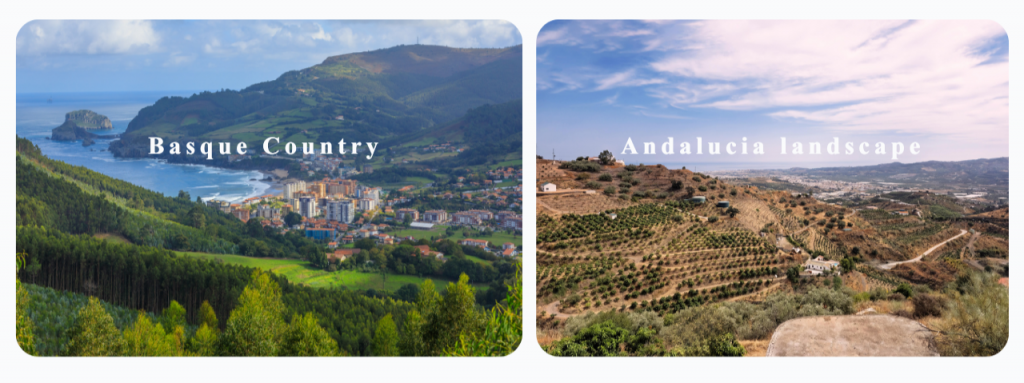
In the north, the landscape is green and cool, and the dishes reflect that. The cuisine feels rustic and comforting, from hearty stews to fresh seafood. Dishes like fabada asturiana, a rich bean stew from Asturias, or cocido monañés from Cantabria, are made to warm you up from the inside. Galicia is famous for its pulpo a la gellega, octopus with olive oil and paprika, while in the Basque Country, pintxos are the most famous. These northern regions also produce exceptional wines, with Rioja being the most famous in the country.

Travel south, and everything feels a little lighter and brighter. In Andalusia, the food is fresh and made to be shared. You’ll find cool, refreshing dishes like gazpacho, a cold soup made from raw, blended vegetables, and salmorejo, a traditional creamy soup, as well as crispy pescaíto frito (tiny, crispy fried fish) by the coast, bringing a taste of the sea. Granada still holds the tradition of serving a free tapa with every drink, making bar-hopping a delicious ritual.
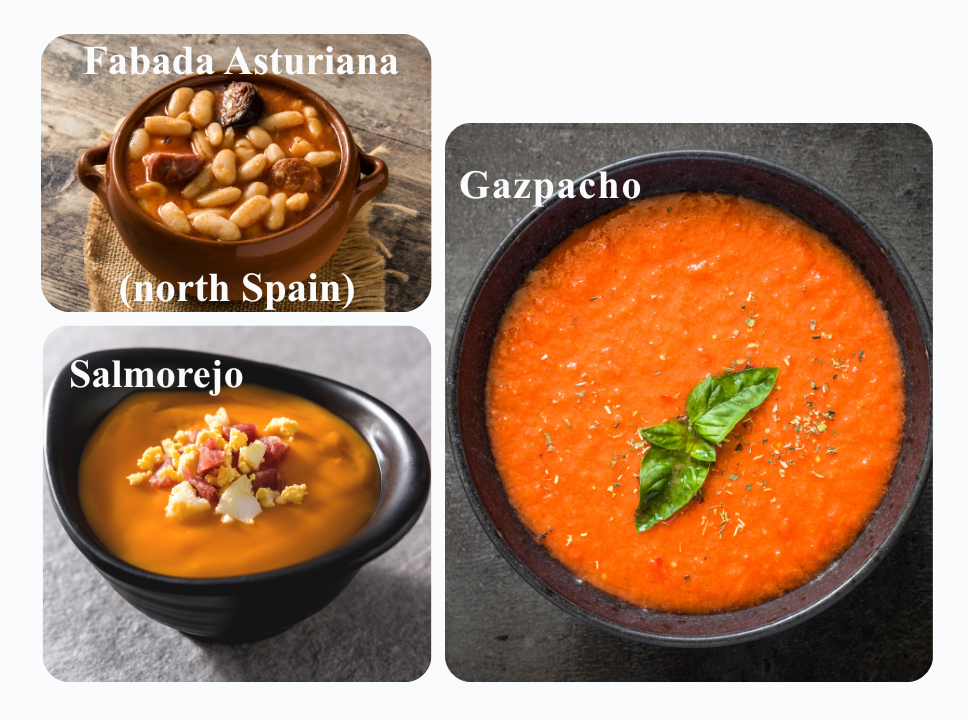
The southern region of Andalusia is also where most of Spain’s olive oil comes from, which holds 80% of the country’s oil production. And it’s not just about olive oil – Andalusia is also home to the sherries of Jerez, and the beloved summer drinks Sangría and Tinto de Verano. These refreshing drinks perfectly capture the easygoing, joyful spirit of Spanish life.

🥰 Greeting everyone with warmth
The country holds a reputation for its warm and friendly people – no cold handshakes and awkward smiles here. Spaniards make you feel welcome with a nice smile, a few kind words, and a two-kiss cheek greeting. Whether it’s a neighbor, friend, or a person they are meeting, you instantly feel comforted and at ease. Small towns, especially, are full of warm, welcoming gestures; a quick chat in the street, a friendly smile, or an invitation to the house.
Of course, in the bigger cities, people can be a little different. They often seem a bit rushed, and a little more reserved – but that seems to happen in big cities everywhere in the world, doesn’t it?
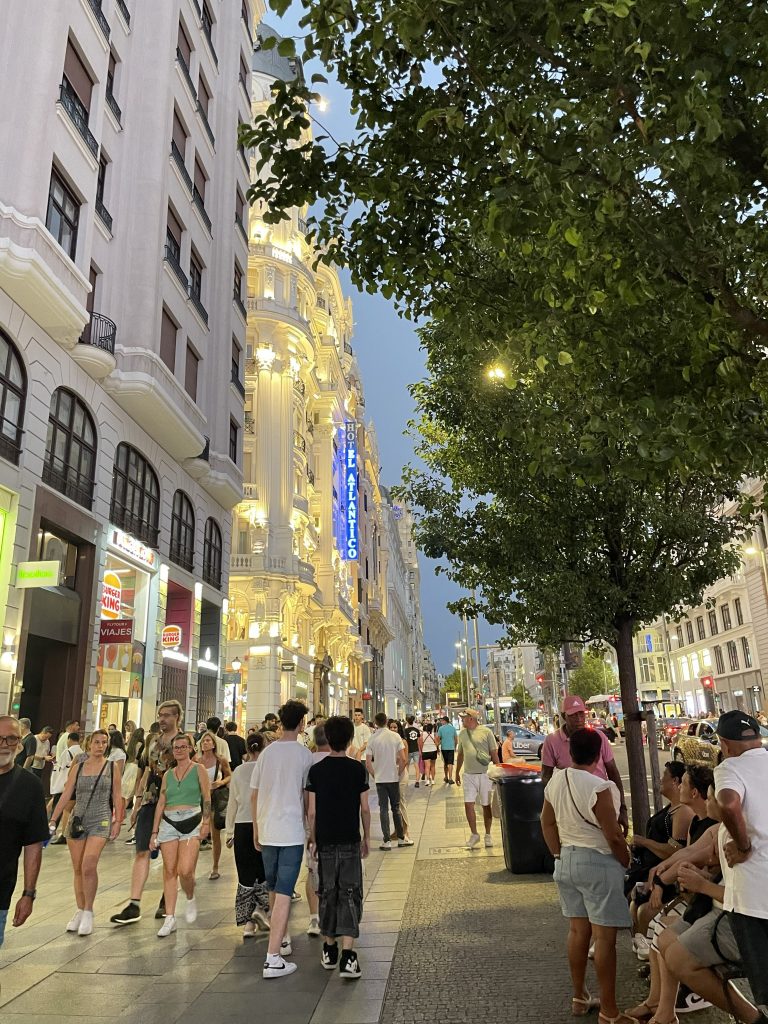
Even there, though, the warmth comes through in little ways: someone giving directions with patience, a smiley barista, or locals making small talk in markets. It’s that combination of openness, humor, and everyday kindness that makes greeting a Spaniard feel like meeting an old friend, no matter where you are.
☕ The rhythm of the day
Life in Spain moves at its own unique rhythm. It might seem unusual to outsiders, but it makes sense in a lot of ways. The typical Spanish workday often stretches across the whole day, starting at nine in the morning. But unlike the nonstop pace found in many other countries, there’s a long, cherished break in the middle of the day. Many people head home to enjoy lunch with their families, rest, and recharge during the traditional siesta time. After this pause, they return to work refreshed and ready to finish the day. This routine perfectly captures Spain’s deep appreciation for balance.

Of course, it’s not a perfect system for everyone. In larger cities, or for those with long commutes, going home for lunch can be tricky, even impossible. Not everyone has the luxury of slipping away for a family meal and a nap. Instead, some people spend their long break at work or in nearby cafés, waiting for the afternoon hours to begin the shift again.
It’s a convenient system for many, offering time for family and relaxation, but for others, it can feel a little draining. Still, the spirit of slowing down and making space for life beyond work remains deeply ingrained in Spanish culture.
The most important thing is that work doesn’t dominate their lives. Even with busy schedules and late hours, Spaniards can often be found socializing at a bar or restaurant on weekday evenings, proving that life doesn’t stop for work. In Spain, life moves a bit more slowly.
These habits are what make Spain stand out. It’s a great vacation spot for anyone seeking good food and drinks, a relaxed pace, and sunny skies. Even on vacation, you can’t help but notice the small, beautiful customs of Spaniards – moments that stay with you long after the trip ends.
📝 Today’s note: Sure, life in Spain isn’t all sunshine and siestas. But there is smothing about the way people slow down and connect that proves small gestures make the biggest impact. A warm hug, good company, and simple pleasures are often all you need for a happy, quality life.
